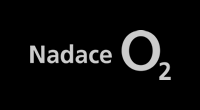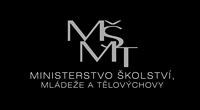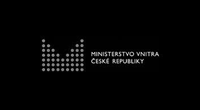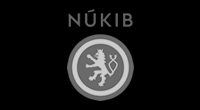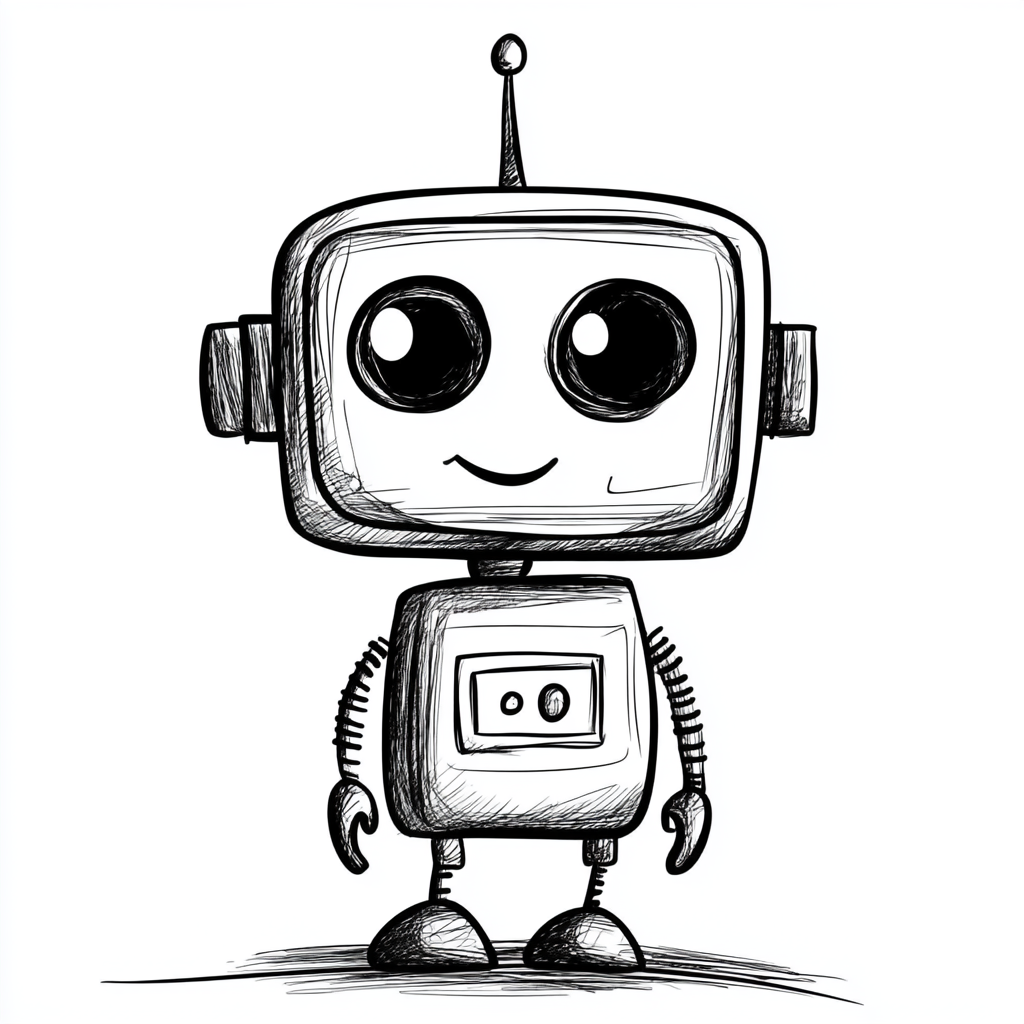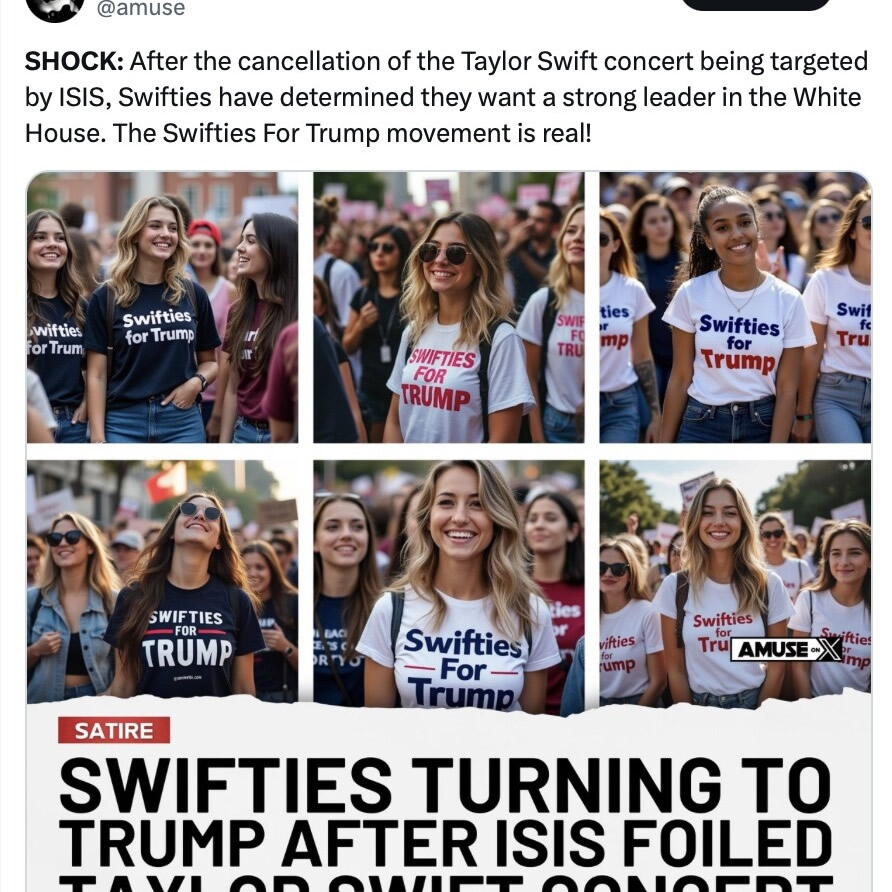 Donald Trump, the former President of the United States, is once again facing criticism for using artificial intelligence in his election campaign. After the discovery of fake AI-generated photos allegedly supporting Trump from Taylor Swift fans and Black voters, concerns about the spread of disinformation and manipulation of public opinion have increased. This is something that will need to be considered in the future as the misuse of artificial intelligence will increasingly affect democratic processes.
Donald Trump, the former President of the United States, is once again facing criticism for using artificial intelligence in his election campaign. After the discovery of fake AI-generated photos allegedly supporting Trump from Taylor Swift fans and Black voters, concerns about the spread of disinformation and manipulation of public opinion have increased. This is something that will need to be considered in the future as the misuse of artificial intelligence will increasingly affect democratic processes.
Donald Trump, former President of the USA and candidate for another term, repeatedly uses advanced technologies, including artificial intelligence (AI), in his political campaign. This trend became evident after several incidents revealed that Trump's team is using AI to spread disinformation and manipulate public opinion.
One of the recent cases that gained international attention was the sharing of fake images of “Swifties for Trump” – images meant to create the impression that fans of popular singer Taylor Swift support Donald Trump. Although these images were initially labeled as satire, they were mixed with real photos of Trump supporters and shared without any comment or warning that they were AI products. This move could easily lead to confusion and reinforce the impression that Trump has support among young Swift fans, contributing to the spread of disinformation on social networks (CBS News, 2024; BBC News, 2024).
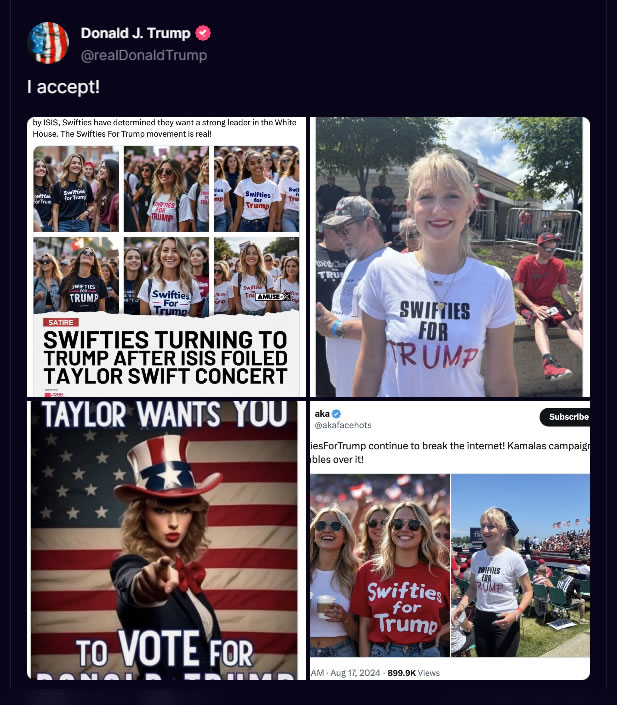
Donald Trump's post on the network Truth.
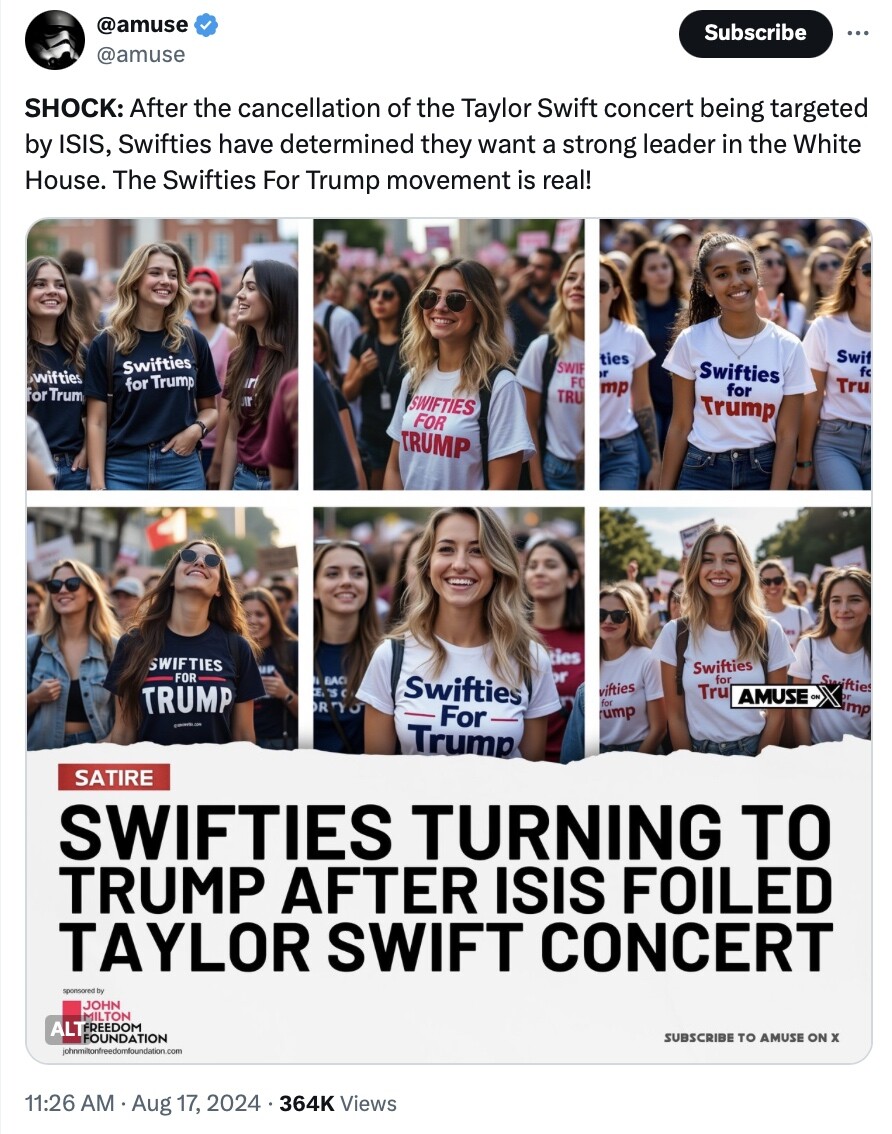
Detail of one of the AI-generated images that was reshared.
Interestingly, Trump himself accused his opponent Kamala Harris of misusing artificial intelligence and generating fake images, despite journalists and present witnesses confirming that she actually shared real, unedited photos from her supporters' gatherings.
However, this incident is not the first time Trump's team has used artificial intelligence to manipulate public opinion. Previously, during his campaign, he spread fake AI-generated photos that were supposed to prove support among Black voters. These images depicted fictional groups of African Americans supporting Trump, aiming to create the impression that the former president had significant support within this community. This move was criticized for being not only unethical but also for manipulating voters' trust and distorting the reality of political support (The Guardian, 2024).
As Prof. Kamil Kopecký from Palacký University in Olomouc points out: "Generative artificial intelligence will undoubtedly start influencing democratic processes, especially elections. Using fake generated photos (or videos), it will be easy to manipulate, for example, public opinion and voter preferences – significantly enhancing or damaging individual candidates. Many voters will not even realize that these are fake materials – they will take AI products as reality. For this reason, it is crucial to intensively and purposefully educate society on this issue."
The misuse of AI in politics brings many risks, particularly in terms of manipulating public opinion and spreading disinformation. Trump's team (or Trump himself) has exploited AI to create false narratives intended to influence voters and gain support from specific demographic groups. This practice is not only ethically questionable but also undermines public trust in political processes and disrupts democratic values.
The use of AI to create such images/photos and disinformation can have far-reaching consequences. Fake information can spread faster than truthful information, which can lead to the rapid formation of incorrect opinions among voters. Moreover, this case shows how easily different communities can be manipulated through popular culture and technology.
Donald Trump's campaign is not the first, nor will it be the last, to resort to these tactics, but it shows how technology can become a tool of power if not properly regulated and monitored. This case also highlights the importance of media literacy and the need for the public to be vigilant and critically evaluate the information they receive online.
E-Bezpečí Editorial Team
Sources:
CBS News. (2024). Trump shares fake 'Swifties for Trump' images. Available at: https://www.cbsnews.com/news/trump-shares-fake-swifties-for-trump-images/
BBC News. (2024). Trump falsely implies Taylor Swift endorses him. Available at: https://www.bbc.com/news/articles/c5y87l6rx5wo
The Guardian. (2024). AI-generated images of Trump with Black voters being spread by supporters. Available at: https://www.theguardian.com/us-news/2024/mar/04/trump-ai-generated-images-black-voters
BBC News. (2024). Trump falsely claims Harris crowd was faked. Available at: https://www.bbc.com/news/articles/cx2lmm2wwlyo












